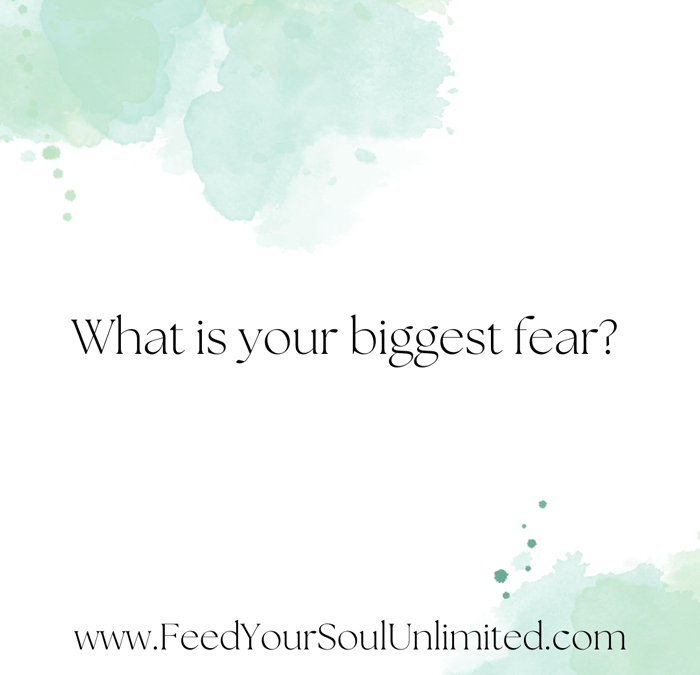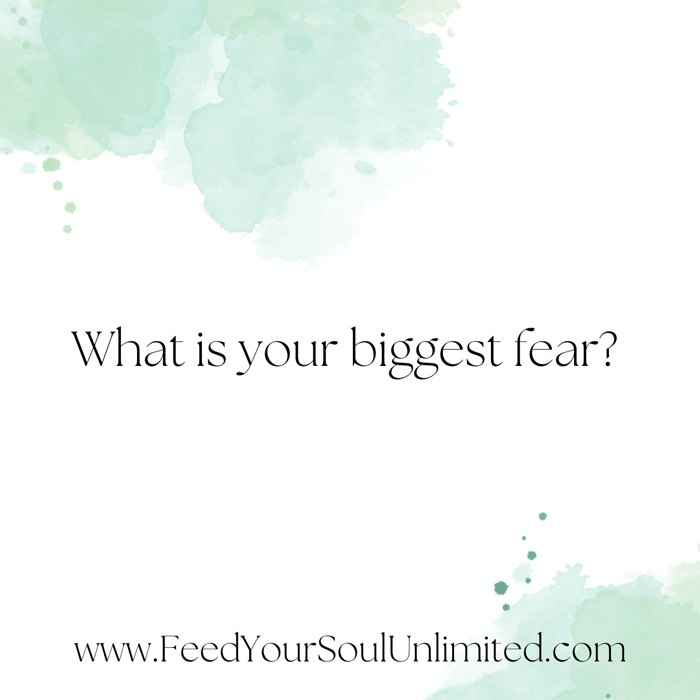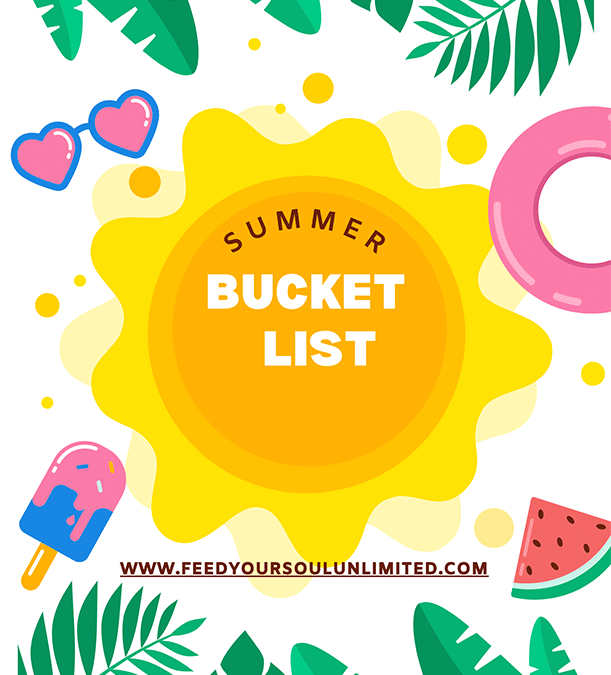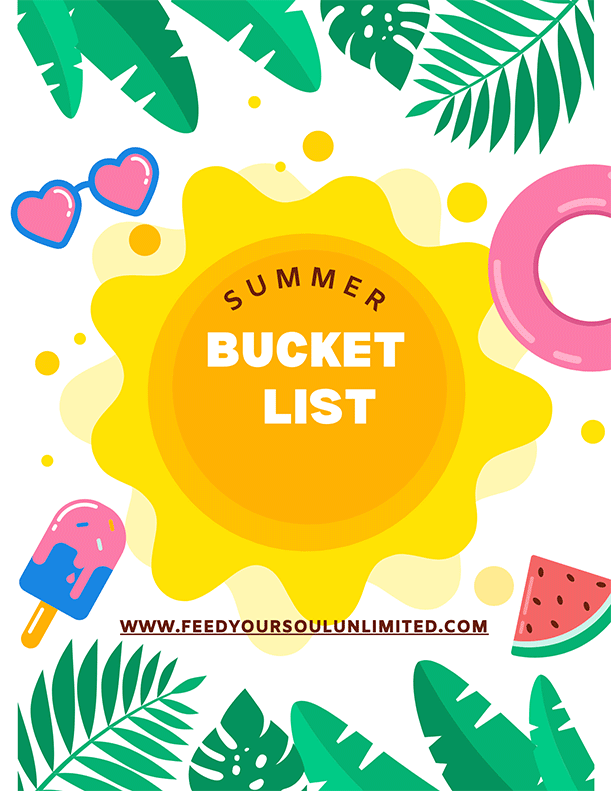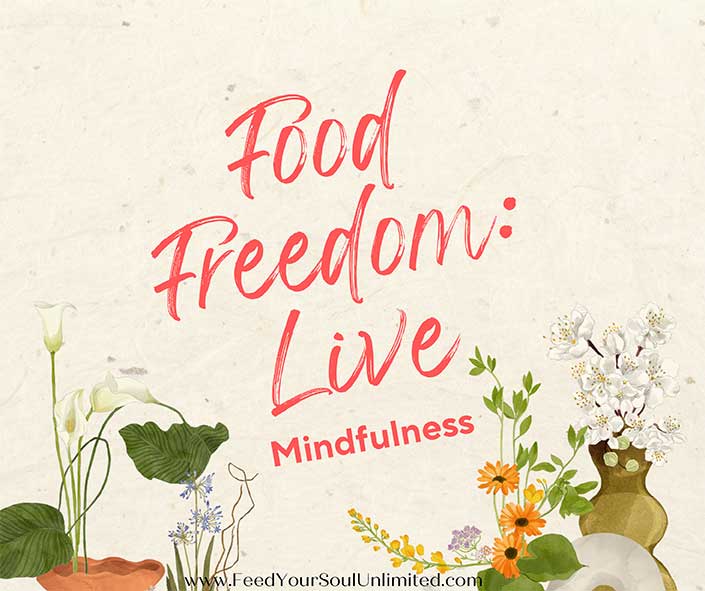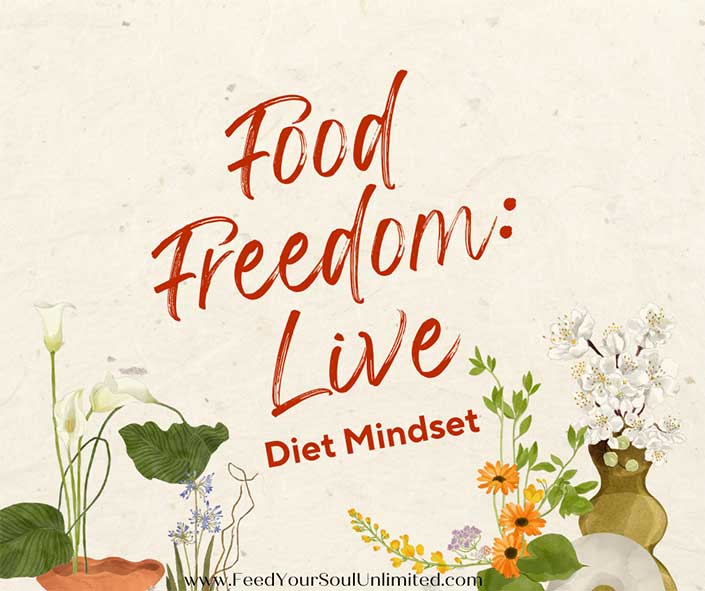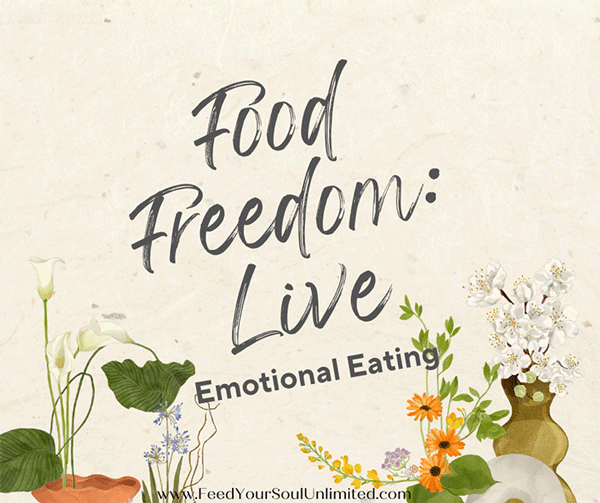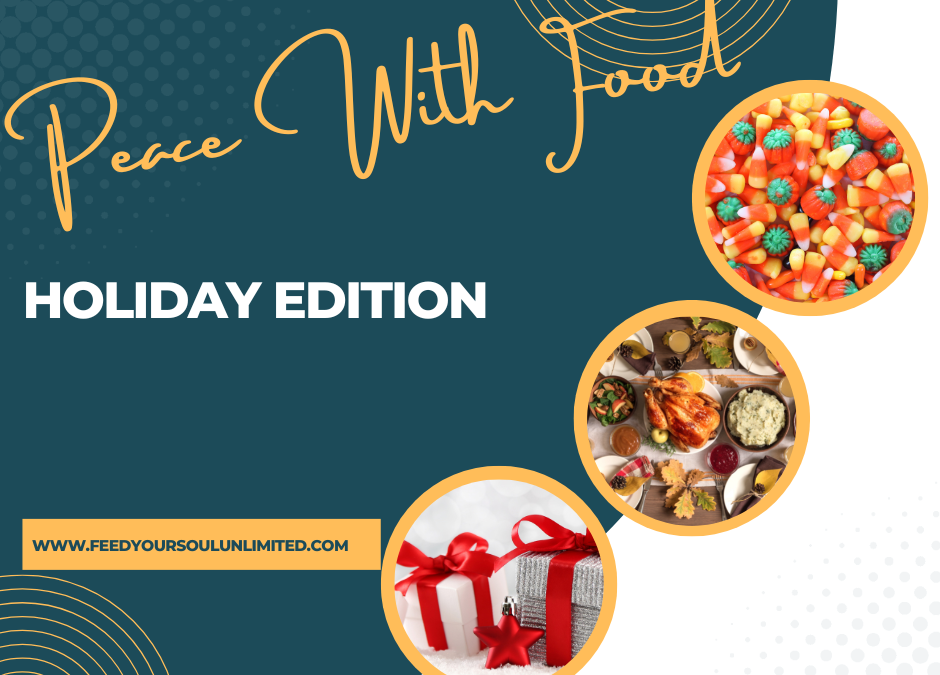
Can you have peace with food this holiday season?
Do you find you are already thinking about candy? It is front and center in the grocery stores. I have already heard stories of people buying candy in September and eating all of it.
This is your opportunity to look at this holiday season, which I lovingly call the Holiday Trifecta, differently. The holiday trifecta is the time between October 1 and January 1 where we can be tempted by food. This is 3 months of pressure, stress and overwhelm.
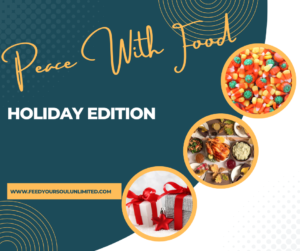
Here are some ways to handle food over the holiday season:
- Don’t keep candy in the house?
- Think you won’t overeat during a holiday meal and then despite your best intention you overeat to the point of feeling sick.
- Plan to overeat this holiday and deal with it (weight gain) January 1 when you plan to go on your diet.
- Plan to restrict your food intake over the holidays. Well, maybe not we all know how well that can work after the second week in October????.
The saying “failing to plan means you’re planning to fail” takes on a whole new meaning when we look at the holiday season. We think we will do it the RIGHT way (whatever that is) and not have problems with food.
The difficulty is the plan is around food not around all the areas that lead us to overeat. This is the season of the special foods, the one we do not have all year. The ones we wait all year for (hello Pumpkin Spiced Latte). We want a lot of the special food because we feel deprived of them the rest of the year.
This deprivation mimics when we are on a diet, and we say we can’t have something. We engage in diet type behavior all year when we don’t have these special foods and then at the holidays, we overeat them. One of my wins is to realize that we can have mashed potatoes anytime, it does not have to just be at Thanksgiving. Allowing the food when we want it makes it part of our normal routine.
To move through this time, it can be helpful to have a plan:
- How will I address food?
- How will I address my emotions?
- How will I address my thoughts?
- How will I address my social obligations, including family members?
- How will I create peace?
- How will I act in a loving way towards myself?
All the above questions lead to the overwhelm. This plan does not have to be vast, but it must be in the forefront of your mind.
There is a better way.
The starting spot can be answering the questions we addressed earlier. Make a conscious choice to make it a peaceful holiday season AND enjoy yourself.
Need support for food this holiday season?
Peace with Food: Holiday Edition is coming!!! This is a super affordable way ($29) to get peace with food this holiday season. Check it out here: https://go.feedyoursoulunlimited.com/holidaychallenge2022
Kim McLaughlin, MA is a Psychotherapist, Speaker, Author, and Coach who specializes in working with people who suffer from binge eating and emotional eating. She is a Certified Intuitive Eating Counselor. She is the author of the best-selling book Feed Your Soul Nourish Your Life! A Six Step System to Peace with Food and the Amazon #1 Best Selling book Discovery Your Inspiration.
You can find Kim on her podcast Feed Your Soul with Kim and you can find it on all podcast platforms.
Wondering if you are an emotional eater? Sign up for the free Am I an Emotional Eater Quiz.

